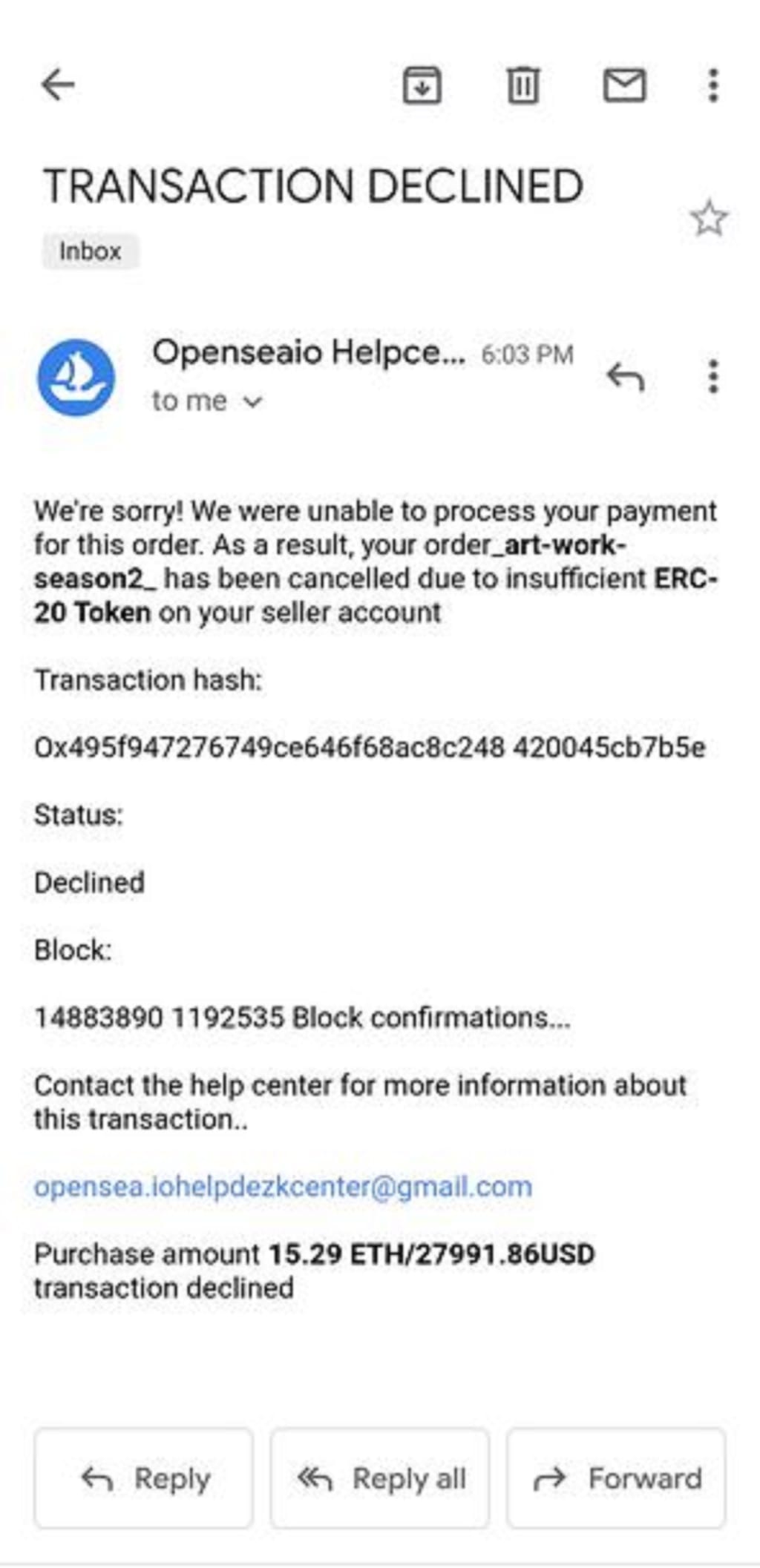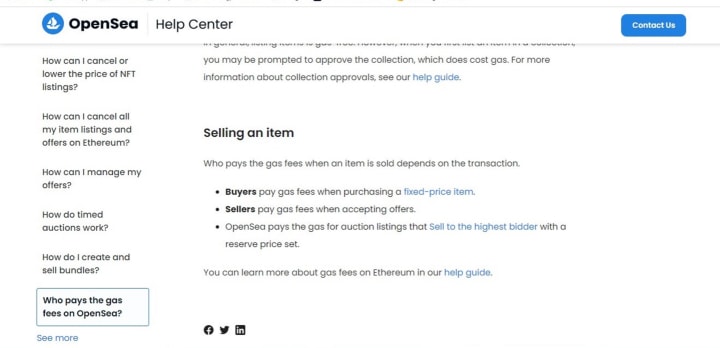
It's unfortunate to hear that there are people attempting to scam others on OpenSea. As a language model, I don't have direct access to OpenSea's internal systems or data, so I can't provide specific details about scams that may be occurring on the platform.
However, there are some general tips that you can follow to protect yourself from scams on OpenSea:
Research the seller or creator: Before purchasing an item, take the time to research the seller or creator. Look for reviews or feedback from other buyers, and check their reputation on other marketplaces or social media platforms. If you can't find any information about them, it might be best to avoid the purchase.
Check the item details: Make sure to read the item description carefully and check the images provided. Look for any inconsistencies or errors in the description, and check the images to see if they match the item being sold.
Use secure payment methods: Only use secure payment methods that offer protection for buyers, such as PayPal or a credit card. Avoid sending money via unsecured methods like wire transfer or cryptocurrency, as these transactions are difficult to reverse.
Report suspicious activity: If you come across any suspicious activity or feel that you have been scammed, report it to OpenSea immediately. They have a dedicated support team that can investigate and take appropriate action.
Remember, it's always better to be cautious when dealing with online marketplaces. If something seems too good to be true or feels off, it's best to err on the side of caution and avoid the transaction.

There are many types of scams that can occur on Facebook, but here are a few common ones:
Phishing Scams: Scammers send you a message or create a post with a link to a fake login page that looks like Facebook. If you enter your login information, the scammers can use it to access your account.
Romance Scams: Scammers create fake profiles and build a relationship with their target, often using fake photos and personal information. Once they gain their target's trust, they may ask for money or personal information.
Lottery Scams: Scammers create fake Facebook posts or messages claiming that the user has won a lottery or sweepstakes. They then ask the user to pay a fee or provide personal information to claim their prize.
Investment Scams: Scammers may use Facebook to advertise investment opportunities that promise high returns. These investments are often fake and designed to steal your money.
To protect yourself from scams on Facebook, it's important to be cautious about who you accept friend requests from and what links you click on. Additionally, avoid providing personal information to people or companies you don't trust. If you think you've been scammed on Facebook, report the incident to Facebook and consider changing your password.
Just like on Facebook, there are several types of scams that can occur on Twitter. Here are a few examples:
Phishing Scams: Scammers create fake Twitter login pages that look like the real thing and use them to steal users' login information. They may send direct messages with a link to the fake page, or they may create tweets with links to the fake page.
Impersonation Scams: Scammers create fake Twitter accounts that look like real accounts and use them to impersonate someone else, such as a celebrity or a well-known brand. They may then use the fake account to promote scams or to steal personal information.
Social Engineering Scams: Scammers use social engineering tactics to trick users into divulging personal information or performing an action they wouldn't normally do. For example, they may pose as a friend and ask for money or try to get the user to click on a link that installs malware.
Hashtag Hijacking: Scammers may hijack popular hashtags and use them to promote their scams. They may also create fake accounts and use them to tweet with the hashtag.
To protect yourself from scams on Twitter, be cautious about clicking on links and only follow accounts that you trust. Also, be wary of direct messages from accounts that you don't know, especially if they are asking for personal information or money. If you think you've been scammed on Twitter, report the incident to Twitter and consider changing your password.





Comments
Zameer ali is not accepting comments at the moment
Want to show your support? Send them a one-off tip.